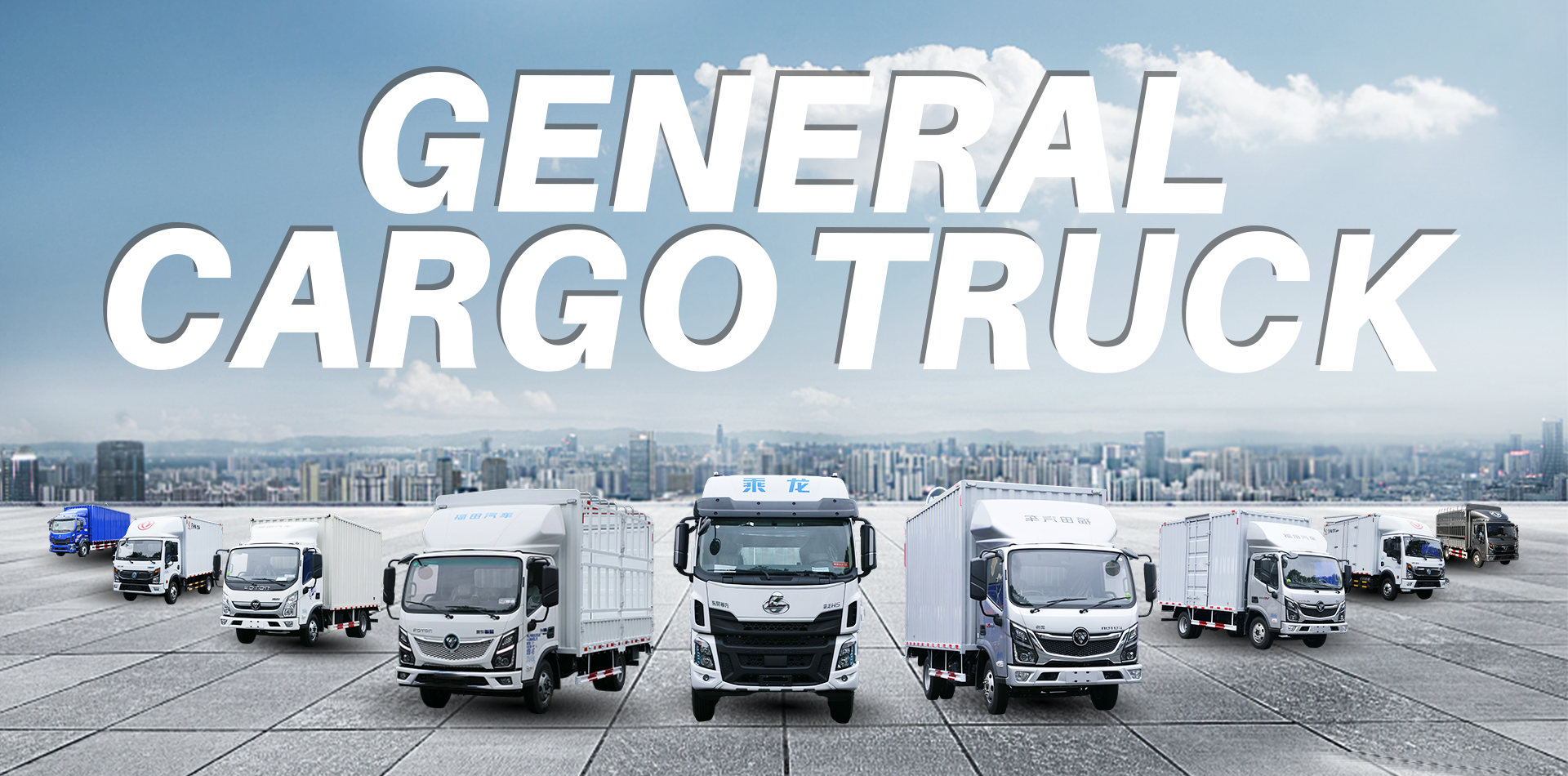Key Factors to Consider When Choosing Box Trucks for Sale
Payload Capacity and GVWR Requirements
Understanding the Gross Vehicle Weight Rating (GVWR) is crucial when selecting a box truck. This metric ensures that the chosen truck can safely handle the weight of the truck itself plus the maximum payload. Staying within the GVWR not only guarantees road safety but also ensures compliance with transportation regulations. A mismatch can lead to hefty fines and potential safety hazards.
Additionally, the payload capacity of a box truck significantly affects cargo efficiency and operational expenses. A higher payload capacity allows businesses to transport more goods in a single trip, potentially lowering fuel costs and increasing productivity. Different models, such as Isuzu box and Ford box trucks, offer varying capacities that can influence fleet choices. Selecting the right payload capacity is essential for cost-effectiveness and meeting business needs.
Box Dimensions vs. Cargo Needs
When considering box trucks for sale, it's imperative to match box dimensions to your specific cargo requirements. Various dimensions are available in the market, each suitable for different cargo types. For example, refrigerated box trucks often feature insulated interiors to cater to perishable goods. By accurately measuring cargo space, businesses can ensure that the selected truck aligns with their logistics needs and prevents logistical inefficiencies.
Failing to consider these aspects can lead to fitting issues, significantly affecting operational costs. For instance, using a box truck with excessive space can increase fuel consumption, whereas insufficient space can lead to multiple trips. Aligning box dimensions with cargo needs is crucial for improving logistical efficiency and minimizing unnecessary expenses.
Fuel Type Options: Diesel vs. Electric Box Trucks
When selecting a box truck, the choice between diesel and electric can affect fuel efficiency and overall cost of ownership. Diesel box trucks, known for their durability and long-range capabilities, have been the traditional choice for many businesses. However, electric box trucks are gaining popularity due to their lower emissions and potential savings in fuel costs and maintenance.
The growing trend toward electric vehicles is backed by environmental benefits and regulatory pressures. Reports from organizations like the EPA highlight that electric vehicles significantly reduce greenhouse gas emissions compared to their diesel counterparts. For businesses looking to reduce their carbon footprint and potentially save on long-term costs, transitioning to electric box trucks is an increasingly viable option.
Comparing Top Box Truck Brands: Isuzu vs. Ford
Isuzu Box Truck: Reliability and Fuel Efficiency
Isuzu is widely recognized in the automotive industry for its unwavering reliability, especially in its box truck lineup. Customer reviews consistently highlight Isuzu trucks for their durability and minimal downtime, which is crucial for businesses relying on consistent vehicle performance. Isuzu's reputation is further solidified by various industry awards, acknowledging its dominance in the reliability segment. Fuel efficiency is another hallmark of the Isuzu box truck, offering substantial savings over the vehicle's lifespan. Many Isuzu models boast impressive miles per gallon ratings, translating to lower fuel costs and reduced environmental impact. According to transportation experts, Isuzu’s market position is strengthened due to this blend of reliability and efficiency, making it a favored choice for businesses seeking cost-effective mobile solutions.
Ford Box Truck: Power and Versatility
Ford is celebrated for crafting powerful and versatile box trucks that cater to a wide range of business needs. From the Transit Box Truck to the larger F-Series models, Ford offers a robust lineup that caters to diverse industries such as construction, delivery, and logistics. These trucks are engineered to tackle demanding tasks, thanks to their powerful engines and advanced towing capabilities. Ford’s versatility is unmatched, allowing operators to adapt their trucks for various applications, whether it's hauling heavy loads or navigating city streets. Performance comparisons often underline Ford's ability to provide superior power and adaptability, reinforcing its appeal to businesses requiring a combination of strength and flexibility in their operations.
Cost Comparison: New vs. Used Models
When deciding between new and used box trucks, the cost difference becomes a pivotal factor. New trucks typically carry a higher purchase price but benefit from comprehensive warranties and the latest technological advancements, ensuring peace of mind and potentially lower maintenance costs. On the other hand, used box trucks offer significant upfront savings, allowing businesses to allocate funds elsewhere. Nevertheless, factors such as resale value, depreciation rates, and available financing options play critical roles in the decision-making process. Market trends indicate a steady appreciation for used models with good maintenance records, signaling an attractive option for businesses on a budget. Understanding these dynamics ensures a well-informed investment strategy when selecting a new or used box truck.
Specialized Box Truck Options for Unique Needs
Refrigerated Box Trucks: Cold Chain Solutions
Refrigerated box trucks play a vital role in maintaining the cold chain necessary for transporting perishable goods like food and medicine. These vehicles ensure that temperature-sensitive items are kept within specified temperature ranges, preventing spoilage and waste. According to market research, the demand for cold chain logistics is skyrocketing, driven by the increasing need for fresh produce and pharmaceuticals in distant markets. For instance, companies using refrigerated trucks have consistently reported reduced waste and enhanced freshness of transported goods, highlighting their efficacy in maintaining the cold chain.
Electric Box Trucks: Sustainability and Cost Savings
Electric box trucks are emerging as a sustainable solution in urban logistics, offering significant environmental benefits. With zero tailpipe emissions, they contribute to improved air quality while reducing greenhouse gas emissions. Governments worldwide are supporting this transition through incentives and grants to encourage businesses to invest in electric trucks. Financial analyses have shown that despite a higher initial purchase price, the total cost of ownership for electric box trucks is lower overall. This is due to reduced fuel and maintenance costs, making them an economically viable option in the long run for businesses aiming for sustainability.
Dock-Height vs. Walk-In Configurations
When it comes to box truck configurations, dock-height and walk-in setups each offer unique benefits. Dock-height trucks are ideal for loading and unloading at standard docks, maximizing efficiency for businesses handling bulk shipments. In contrast, walk-in trucks provide easy access for smaller deliveries directly to local businesses or consumers without dock facilities. Industry standards and regulations have established guidelines for both configurations, ensuring safety and operational efficiency. Experts recommend businesses choose configurations based on cargo type and delivery frequency—for instance, walk-ins for urban deliveries and dock-height for regional transport.
Buying Tips for New and Used Box Trucks
Inspecting Used Box Trucks: Mileage and Maintenance
When buying a used box truck, it's crucial to conduct a thorough inspection focusing on key areas like mileage and maintenance records. Begin by evaluating the truck's mileage, as higher figures might indicate extensive use and potential wear and tear issues, such as engine fatigue or drivetrain wear. Maintenance documentation is equally vital; it provides insights into how well the truck was serviced and identifies recurring problems or failures. It's common to assess visible signs of wear and tear, including tire condition and rust. Expert advice from vehicle inspectors suggests looking for consistent maintenance history and ensuring components like brakes, transmission, and suspension are in good working order to minimize the risk of unexpected repair costs.
Financing Options and Tax Incentives
Securing the right financing for purchasing box trucks involves exploring several options, including loans and leasing arrangements. Loans offer ownership benefits, while leasing provides flexibility without the immediate financial burden. Businesses can often benefit from tax incentives when investing in box trucks. Some jurisdictions offer deductions for commercial vehicle purchases, reducing the overall tax burden and enhancing affordability. Financial advisors frequently recommend opting for loans if the company plans to own the trucks long-term, and leasing if short-term use is anticipated. Exploring government programs and tax credits for sustainable or energy-efficient vehicles can also provide financial relief.
Warranty Considerations for Long-Term Value
Investing in a box truck necessitates understanding the warranty options available, as warranties protect against unexpected repair costs and bolster long-term value. There are differences to consider: a manufacturer's warranty often covers the initial years of ownership, while extended warranties may provide additional security beyond this period. It's important to scrutinize warranty coverage, focusing on components like the powertrain, electrical systems, and onboard equipment. Statistics show that repair costs can quickly escalate without proper coverage, emphasizing the role of warranties in safeguarding the investment. A well-chosen warranty can mitigate risks from both usage and age-related issues, ensuring financial peace of mind.

